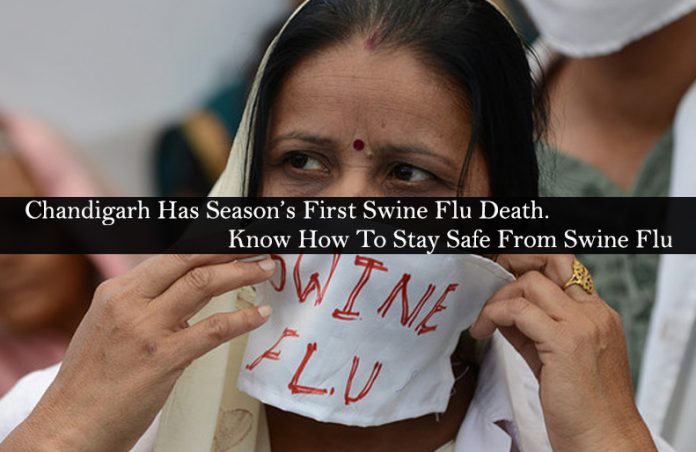Year after year, Chandigarh has been under grip of terror with swine flu, dengue and malaria claiming so many innocent lives in the city.
This year again, Chandigarh saw its first death to swine flu. 42-year-old, Shyam Verma of Sector 37, died at PGIMER on Thursday evening. The city has already reported 4 cases of swine flu.
WHAT IS SWINE FLU?
- Swine flu, also known as the H1N1 virus, is a relatively new strain of an influenza virus that causes symptoms similar to the regular flu. It is a respiratory disease caused by influenza viruses that infect the respiratory tract of pigs and result in a barking cough, decreased appetite, nasal secretions, and listless behavior.
- Swine flu viruses may mutate (change) so that they are easily transmissible among humans. It is highly contagious. A simple sneeze can cause thousands of germs to spread through the air. The virus can linger on tables and surface areas like door knobs, waiting to be picked up.
- The April 2009 swine flu was first observed in Mexico and in August 2010, WHO declared it pandemic.
Risk factors for swine flu
Today, risk factors for getting swine flu are the same as for any other strain of the flu.
Some people are at higher risk for becoming seriously ill if they’re infected with swine flu. These groups include:
- adults over age 65
- children under 5 years old
- young adults and children under age 19 who are receiving long-term aspirin (Bufferin) therapy
- people with compromised immune systems (due to a disease such as AIDS)
- pregnant women
- people with chronic illnesses such as asthma, heart disease, diabetes mellitus, or neuromuscular disease
Causes of swine flu
Swine flu is caused by a strain of influenza virus that usually only infects pigs.
You can’t catch swine flu from eating properly cooked pork products.
Swine flu is very contagious. The disease is spread through saliva and mucus particles. People may spread it by:
- sneezing
- coughing
- touching a germ-covered surface and then touching their eyes or nose
Symptoms of swine flu
The symptoms of swine flu are very much like those of regular influenza. They include:
- chills
- fever
- coughing
- sore throat
- runny or stuffy nose
- body aches
- fatigue
- diarrhea
- nausea and vomiting
Diagnosing swine flu
Your doctor can make a diagnosis by sampling fluid from your body. To take a sample, your doctor or a nurse may swab your nose or throat.
The swab will be analyzed using various genetic and laboratory techniques to identify the specific type of virus.
Preventing swine flu
The best way to prevent swine flu is to get a yearly flu vaccination.
Other easy ways to prevent swine flu include:
- Maintain personal hygiene. Frequently wash your hands with soap or hand sanitizer
- Do not touch your nose, mouth, or eyes (The virus can survive on surfaces like telephones and tabletops.)
- Avoid large gatherings if you have fever or sore throat. Don’t go to school or work
- Take healthy diet to boost up your immune system
- Maintain some distance when meeting a affected person.
- Consult your doctor immediately if you have difficulty in breathing, fever and sore throat.
Source: Hindustan Times & HealthLine
Image Credits: Google Images





















